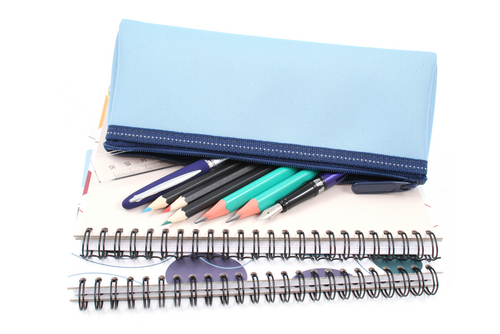D. Wright, Murray City School District Public Relations Specialist, shares five things teachers wish parents knew about starting the year off right.
Just about everyone bound for Back-to-School is likely to have some form of first-day jitters … and this includes students and teachers alike. Giving a little thought and effort to what is going to be taking place before school begins could help a great deal to boost your student’s confidence. Here are some ideas to help everyone with Back-to-School anxiety:
1. Know Where You’re Going
• Help your child to feel familiar with the building and room where they will spend a great part of their time in the upcoming school year. As early as possible, make a visit to the school, walk to the classroom, locate the cafeteria, the principal’s office, the gym, the nurse’s office, the cafeteria, the media center, lockers, entrances, etc. so that your child can have a visual image of what to anticipate.
• If you should happen to bump into teachers, principals, librarians along the way, all the better. Introduce yourself and your child and establish a relationship.
• Even if your child has already attended the school, it’s not a bad idea to drop by right before school starts to ease the way back.
• Getting information on who may be in your child’s class or classes may help to ease anxiety some also.
2. Know When You Need to Be There (and everywhere …)
• Find out your students school year schedule and start familiarizing everyone with it as you near the beginning of the school year
• Re-establish bedtimes and morning getting-up times a couple of weeks before school starts.
• If your child is going into secondary schools, be sure they understand how their schedule works; block systems, A & B days, etc. Most schools will have had orientation in this, but it never hurts for the parent to understand also, in case something about the schedule becomes frustrating in the future.
• Figure out how extracurricular activities will work with the school schedule and other before or after school commitments. Get a copy of schedules so that you can put them into your calendar and try to keep dates from conflicting (as best as possible).
3. Know What You Need to Take
• Get supply lists and shop for needed items, and be sure to include a backpack or some kind of school bag.
• Mark supplies clearly before taking them to school. There will be many students there with the same supplies, so be sure your child can tell hers apart. This can be a fun time getting things together and talking about how they will be used.
• Determine what the reality is for school lunches – will your child buy or take? If they are older, will they be running off campus too eat, and if so, how much will that cost, is it against school rules, and is it safe?
• If your child is involved in extra-curricular activities, figure out the costs and equipment needed to participate.
• Back-to-School clothes – if new purchases are an option for your family, what shape are the tennis shoes in, jeans, jackets, etc. Do a little inventory on this and whether you need to take a trip to the DI or Nordstrom, at least try to be aware of what may have been outgrown during the summer.
4. Know the Rules
• It is important for parents and students to be on the same page regarding rules. A child’s interpretation of the rules may vary greatly from the reality of the school expectation.
• Dress codes, start times, tardy rules, electronics in the school building, Drug and Safe School policies and sexual harassment are all issues that start much earlier than most parents of young children think. Be aware of these concerns and discuss them with your student, as feels appropriate.
• Reviewing rules form the school handbook or registration packet can clarify expectations for the students. It also gives the parent an opportunity to make a connection about why the rule may be in place and what specific incident may have caused there to be such a rule. It is always better to find about potential problems BEFORE they occur.
5. Know Parental Expectations
• Be sure that your child’s records and contact information are up to date. This can cause both you and your school administration many frustrating calls if your child is not caught up on state health requirements.
• Know about what you need to know about your child’s school and school district. Check both websites frequently for updates and information that school officials are trying to share with you. Sign up for newsletters and read information that comes home. Kids often don’t get important facts home and you need to back them up in every way you can find, especially when they are younger. Their being prepared and ready for what’s happening at school helps them to feel more confident.
• Make every effort possible to attend Parent/Teacher meetings. This is very reflective upon your child and he may have spent a great deal of time preparing items for you to share with you, under the teacher’s direction.
There is probably no more exciting and anxious time in a child’s life than Back-to-School time. There are new people in their lives and new expectations that may seem overwhelming. It is a time when even the most confident child (or adult) may feel out of their comfort zone. Some time spent before the first day back in orienting, planning and reviewing new school year realities can go a long, long way in help to prepare your child both mentally and emotionally for that first big day, week, month and year back-to-school!















Add comment